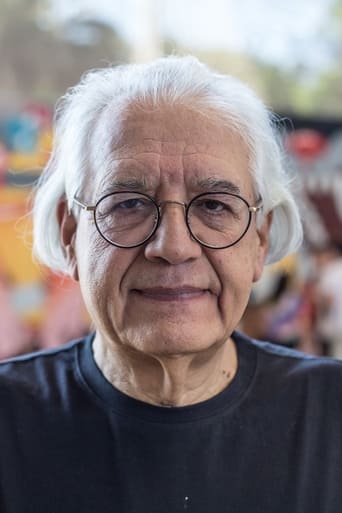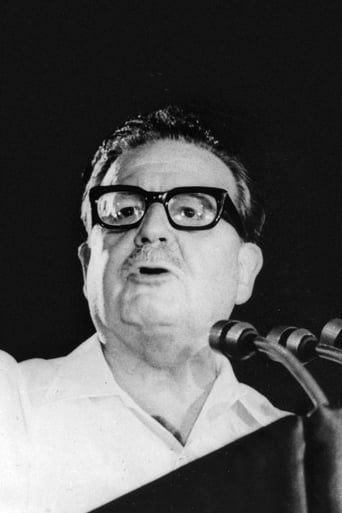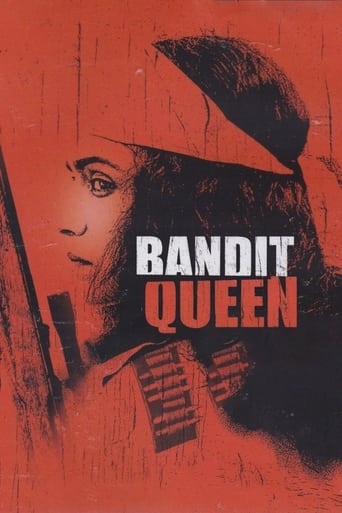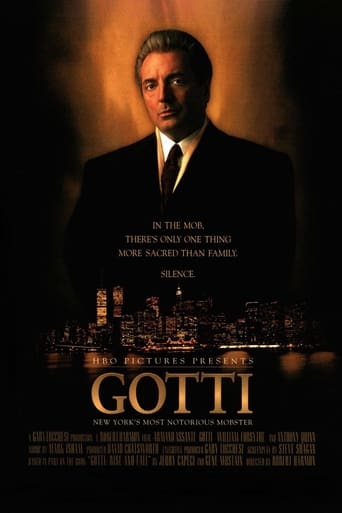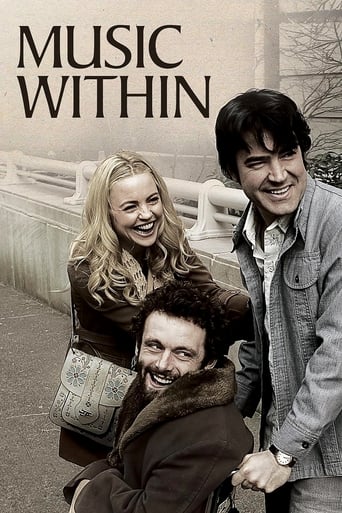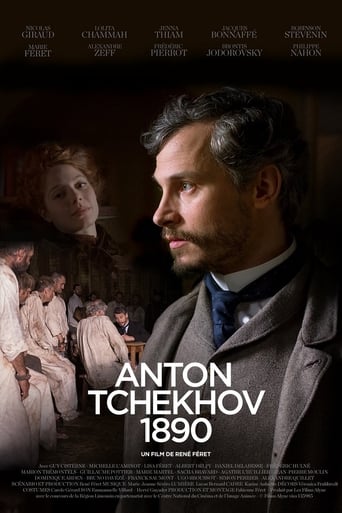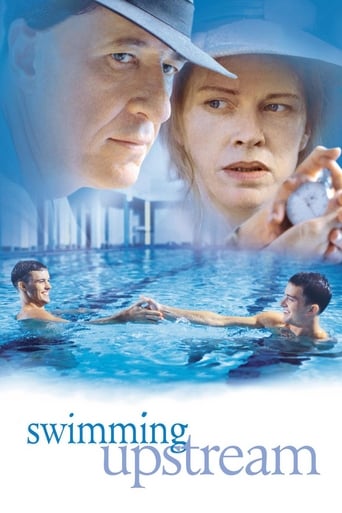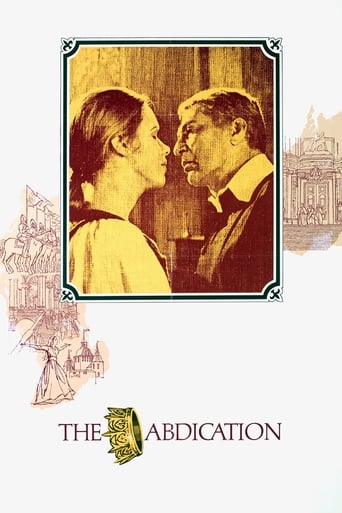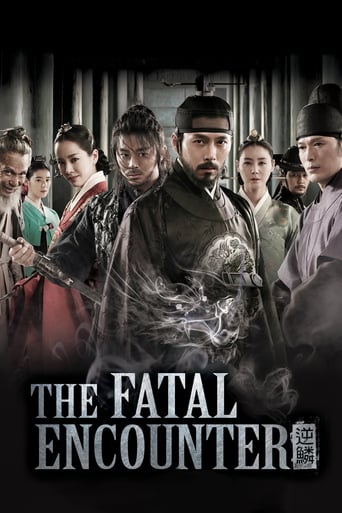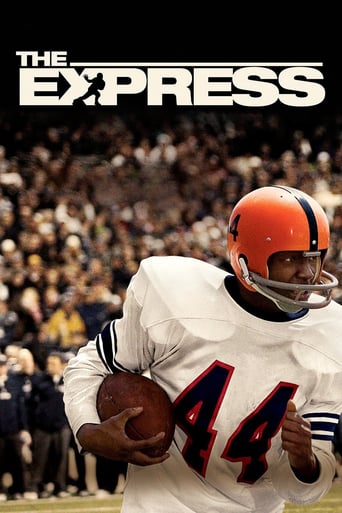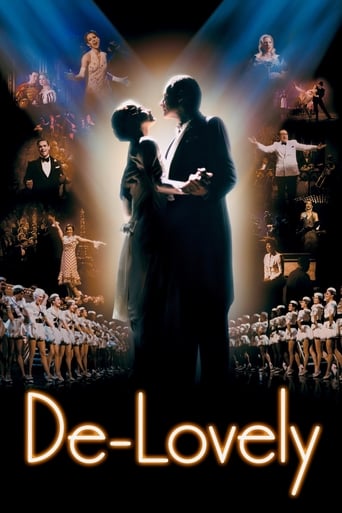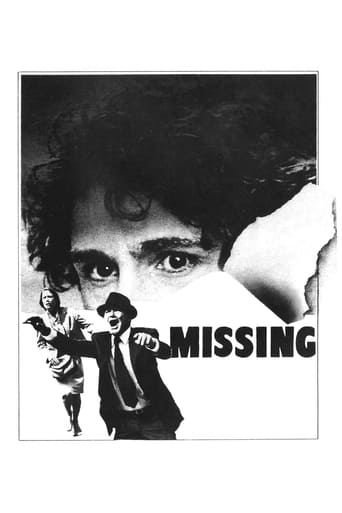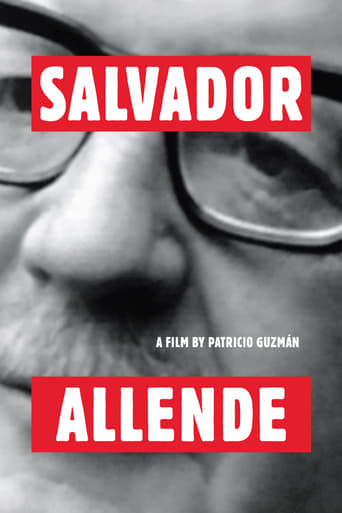

Salvador Allende (2004)
A leftist revolutionary or a reformist democrat? A committed Marxist or a constitutionalist politician? An ethical and moral man or, as Richard Nixon called him, a "son of a bitch"? In SALVADOR ALLENDE, acclaimed Chilean filmmaker Patricio Guzmán (The Battle of Chile and Chile, Obstinate Memory) returns to his native country thirty years after the 1973 military coup that overthrew Chile's Popular Unity government to examine the life of its leader, Salvador Allende, both as a politician and a man.
Watch Trailer
Cast


Similar titles
Reviews
Even though documentaries tend to be slightly peculiar and boring most of the time, I found this account of the life of Salvador Allende to be quite intriguing. I loved the varied of opinions that were given from many people from his family members, to a United States government worker. Also, the variety of media used to depict certain events in his life was captivating. I especially loved watching the artist draw his house going up in flames. It made me feel as if I was there on that very day, watching the catastrophe unfold. The charcoal smudged across the page, just as I suspect the smoke veiled the scene that day. This movie has an artistic semblance that I believe goes unnoticed.
This is a tragic, moving tale of a courageous political leader who tried to make the world a better place for the most disadvantaged of his country's citizens. Ironically, it's the interviews with the US ex-ambassador to Chile which seem the most insightful. The ambassador got it exactly right: Allende never had a chance. The forces arrayed against Allende in his attempt to transform Chile into a democratic socialist regime were simply overwhelming: the US, international finance capital, the Chilean bourgeoisie, most of the Chilean middle classes, and the Chilean army. In a sense, Allende should have known better: he had before him the unsuccessful examples of republican Spain in the '30s and Guatemala in the '50s. In neither case had it been possible to introduce far- reaching social and economic reforms which aroused the unconditional hostility of the capitalist ruling class and neighboring reactionary states. And Allende would have had no more success if he had armed the workers and campesinos, since the Chilean army showed no signs of demoralization and disintegration—the conditions under which a "people's army" has a chance to triumph over a well-armed, disciplined professional army. The people in the people's army would have been slaughtered tout court. Perhaps his only chance came with the assassination of Rene Schneider, Allende's pick as head of the Chilean armed forces. He could have used the assassination as an excuse for a thorough house- cleaning of the military high command, assuming he could have found some of Latin-America's famous "left-wing colonels" who would have been necessary to carry out the purge. But it would have been a risky proposition that just as easily could have precipitated the military coup that came 3 years later. The film should also prompt some rethinking of the concept of the "dictatorship of the proletariat"—a concept that's had rather bad press in recent decades. One of Allende's closest friends tells us that Allende was a committed Marxist socialist but certainly not a Leninist, because he did not believe in the dictatorship of the proletariat. Allende, we're told, believed in democracy. But the problem was that the democracy Allende believed in was in reality a dictatorship of another kind: the dictatorship of the bourgeoisie. Despite its façade of multi-party elections, Chilean democracy was a stacked deck, inevitably manipulated in favor of the ruling classes.So Lenin was right: only by forcing the collapse of the coercive apparatus sustaining the rule of the bourgeoisie could the working classes create a state that serves their interests. What distinguishes the dictatorship of the proletariat from the dictatorship of the bourgeoisie is not that one is a multi-party system and the other a single party system (there's no lack of single-party states in the history of the rule of the bourgeoisie). Rather, it's the stacking of the deck in favor of working people versus stacking it in favor of the owners of capital.
I have recently seen Patricio Guzman s documentary on that great human being that was Salvador Allende. The intelligent,highly educated, witty, honest,democrat, brave, and above all, profoundly humanitarian president that the contemporary world has ever seen is marvelously portrayed on this film which is surely now becoming a blockbuster around the world. By the way I was 20 and living in Chile when Allende died and can testify that none of the attacks against the late president made by persons who dislike him are true. On the contrary he was just like the film shows and I dare to say he was by far much more, since it is practically impossible to wholly depict such a huge character like the Great Salvador allende in a short two hour film. But any way the film is by all means well worth watching.
The film takes the spectator, but especially the '68 generation back to those years when youth, in many parts of the world, was so far from each other in distance, yet so close to each other in their ideologies. I feel grateful that Guzman has produced this film to renew our memories; to show and remind the younger generations what their parents had suffered in such countries for their thoughts or ideology. A respectful tribute and a powerful example of a leader with dignity.Last but not least, the music of Quilapayun, Inti Illimani, and Victor Jara is bound to create a bitter-sweet nostalgia in anyone who had admired them in those years.


